第3章 THE MAN WHO WOULD BE KINGBY RUDYARD KIPLING(3)
Then I became respectable, and returned to an office where there were no Kings and no incidents outside the daily manufacture of a newspaper.A newspaper office seems to attract every conceivable sort of person, to the prejudice of discipline.Zenana-mission ladies arrive, and beg that the Editor will instantly abandon all his duties to describe a Christian prize- giving in a back slum of a perfectly inaccessible village; Colonels who have been overpassed for command sit down and sketch the outline of a series of ten, twelve, or twenty- four leading articles on Seniority /versus/ Selection; missionaries wish to know why they have not been permitted to escape from their regular vehicles of abuse, and swear at a brother missionary under special patronage of the editorial We; stranded theatrical companies troop up to explain that they cannot pay for their advertisements, but on their return from New Zealand or Tahiti will do so with interest; inventors of patent punka-pulling machines, carriage couplings, and unbreakable swords and axletrees call with specifications in their pockets and hours at their disposal; tea companies enter and elaborate their prospectuses with the office pens; secretaries of ballcommittees clamour to have the glories of their last dance more fully described; strange ladies rustle in and say, "I want a hundred lady's cards printed /at once/, please," which is manifestly part of an Editor's duty; and every dissolute ruffian that ever tramped the Grand Trunk Road makes it his business to ask for employment as a proof- reader.And, all the time, the telephone-bell is ringing madly, and Kings are being killed on the Continent, and Empires are saying, "You're another," and Mister Gladstone is calling down brimstone upon the British Dominions, and the little black copyboys are whining, "/kaa-pi chay-ha-yeh/" ("Copy wanted"), like tired bees, and most of the paper is as blank as Modred's shield.
But that is the amusing part of the year.There are six other months when none ever come to call, and the thermometer walks inch by inch up to the top of the glass, and the office is darkened to just above reading- light, and the press-machines are red-hot to touch, and nobody writes anything but accounts of amusements in the Hill-stations or obituary notices.Then the telephone becomes a tinkling terror, because it tells you of the sudden deaths of men and women that you knew intimately, and the prickly heat covers you with a garment, and you sit down and write: "A slight increase of sickness is reported from the Khuda Janta Khan District.The outbreak is purely sporadic in its nature, and, thanks to the energetic efforts of the District authorities, is now almost at an end.It is, however, with deep regret we record the death," etc.
Then the sickness really breaks out, and the less recording and reporting the better for the peace of the subscribers.But the Empires and the Kings continue to divert themselves as selfishly as before, and the Foreman thinks that a daily paper really ought to come out once in twenty- four hours, and all the people at the Hill-stations in the middle of their amusements say, "Good gracious! why can't the paper be sparkling? I'm sure there's plenty going on up here."That is the dark half of the moon, and, as the advertisements say, "must be experienced to be appreciated."It was in that season, and a remarkably evil season, that the paper began running the last issue of the week on Saturday night, which is to say Sunday morning, after the custom of a London paper.This was a greatconvenience, for immediately after the paper was put to bed the dawn would lower the thermometer from 96 degrees to almost 84 degrees for half an hour, and in that chill--you have no idea how cold is 84 degrees on the grass until you begin to pray for it--a very tired man could get off to sleep ere the heat roused him.
One Saturday night it was my pleasant duty to put the paper to bed alone.A King or courtier or a courtesan or a Community was going to die or get a new Constitution, or do something that was important on the other side of the world, and the paper was to be held open till the latest possible minute in order to catch the telegram.
It was a pitchy-black night, as stifling as a June night can be, and the/loo/, the red-hot wind from the westward, was booming among the tinder- dry trees and pretending that the rain was on its heels.Now and again a spot of almost boiling water would fall on the dust with the flop of a frog, but all our weary world knew that was only pretence.It was a shade cooler in the press-room than the office, so I sat there, while the type ticked and clicked, and the night-jars hooted at the windows, and the all but naked compositors wiped the sweat from their foreheads and called for water.The thing that was keeping us back, whatever it was, would not come off, though the loo dropped and the last type was set, and the whole round earth stood still in the choking heat, with its finger on its lip, to wait the event.I drowsed, and wondered whether the telegraph was a blessing, and whether this dying man, or struggling people, might be aware of the inconvenience the delay was causing.There was no special reason beyond the heat and worry to make tension, but, as the clock-hands crept up to three o-clock and the machines spun their fly-wheels two and three times to see that all was in order, before I said the word that would set them off, I could have shrieked aloud.